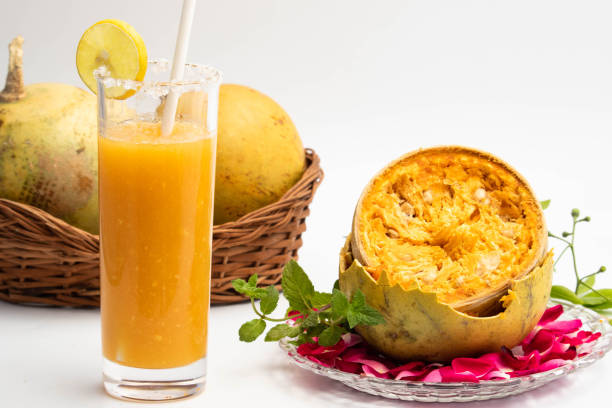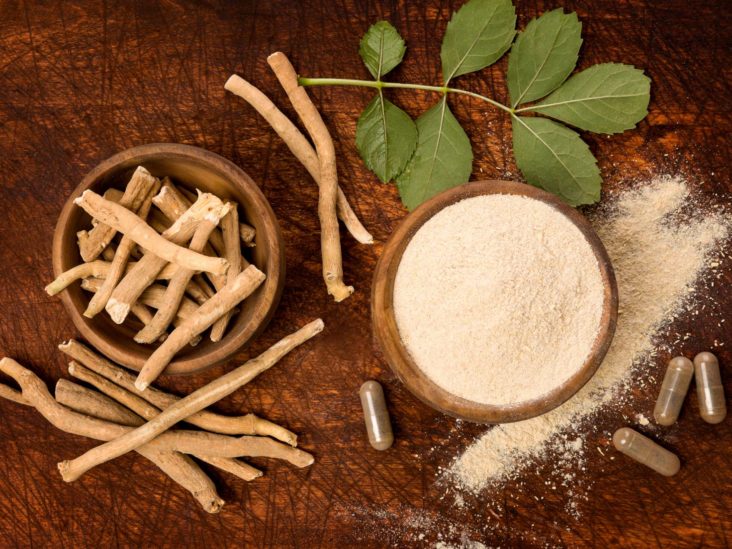A Comprehensive Guide on Bael Fruit

The Indian summers are usually a medley of memories – the summer vacations, the long-awaited visit to grandparents, and the soothing afternoon naps under the water cooler. These memories are filled with the aroma of unique summer fruits that made a cameo appearance. We agree that mango is the first thing that comes to mind when we think of summer fruits, but how can we forget the humble Bael or Bel fruit? Most of us found it repulsive because of the strong, pungent smell, but our mothers ensured we had our seasonal regulated share of this summer coolant by mixing it with milk, sugar, and whatnot! But as we learn more about the health benefits of this wonderful fruit, it is no surprise that it is gaining much-deserved popularity.
Significance of Bael Fruit
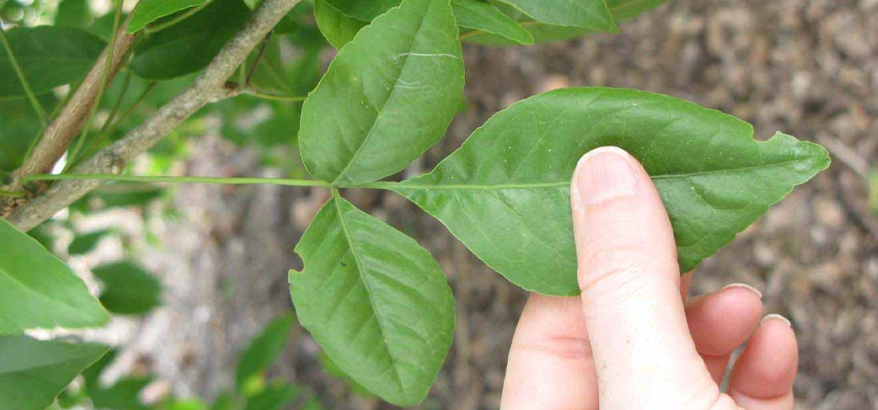
Although called wood apple, Bael fruit or Aegle marmelos has little resemblance to apples. The yellowish, woody rind houses the soft, mushy pulp with a unique flavor and aroma you either love or hate. The flavors are as complex and surprising – sweet, tangy, and musky- making it a refreshing summer cooler. The Bael tree also has religious significance – the leaves and fruits are associated with Lord Shiva. The three-pronged leaf of Bael resembles Shiva’s Trishul – symbolizing creation, preservation, and destruction. It is also said to represent the Trimurtis – Brahma, Vishnu, and Shiva. The Bael tree is believed to have emerged from the sweat drops of Goddess Parvati. It thus is considered the favorite of Shiva. According to Hindu mythology, merely touching the Bael leaves frees a person from all ailments and sins.
Benefits of Bael
Bael is a tropical, deciduous tree that has several traditional healing uses. All parts of the plant – the leaf, bark, fruits, and seeds have medicinal value. In Ayurveda, Bael is hailed as a digestive supplement. The root of Bael, also called bilva in Sanskrit, is one of the ingredients of Dasamoola- the ten potent roots. As per Dhanvantri Nigantu, an ancient Ayurveda text, unripe Bael fruit alleviates Kapha and is Katu (pungent), Tikta (bitter), and Kashaya (astringent) in taste. It treats Grahaniroga (IBS), Pravhika (Diarrhea), and Agnimandya (Indigestion). The ripe fruit is Madhura (sweet taste), and gut issues. The roots of Bael cure nausea and vomiting. Powder of Bael leaves balances the tridoshas and effectively prevents abdominal pain, dyspepsia, and gastritis. Decoction of the Bael stem or bark of the plant benefits heart-related ailments improves digestion, and treats rheumatoid arthritis.
Let us look at the bael benefits:
Bael as Digestive Tonic
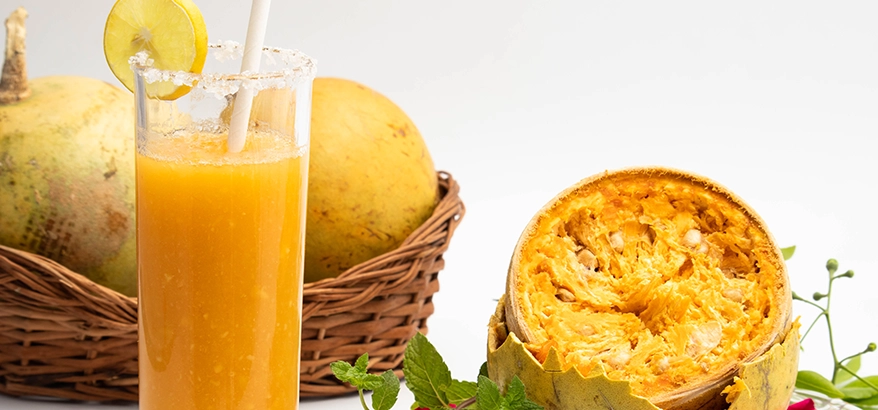
Bael fruit juice is an excellent digestive tonic for all your gut issues. It is rich in tannins that have anti-bacterial and anti-fungal properties making it ideal for consumption during indigestion and diarrhea. It is rich in fibers which help in smooth bowel movements. During summer, when your digestion feels slightly off, Bael juice restores your appetite because of its carminative property. It relieves fatigue and helps cool down the body.
For making Bel juice:
- Scoop the pulp into a bowl and add a cup of water.
- Let it soak for a few minutes.
- After this, squeeze the pulp, and discard the seeds and the hard part.
- Strain the juice using a strainer and add more water if required. You may also add milk.
- Add sugar if needed.
- Add a pinch of salt and cumin powder.
- Serve chilled.
Bael for Blood Sugar Balance
Bael leaves are rich in flavonoids and polyphenols that can improve insulin sensitivity. Studies found that taking an aqueous extract of bael leaf daily significantly reduced fasting blood glucose levels in people with type 2 diabetes. It also reduces lethargy and GI issues that people with Diabetes might face. The low glycemic index of Bael fruit means it is safe for both Type 1 and Type 2 diabetes.
Bel Leaves for Hair Growth
Limonene is a natural oil in citrus fruits with antimicrobial, anti-inflammatory, and antioxidant properties. Bael leaves are rich in limonene which strengthens and nourishes the hair follicles. Applying Bel leaf paste on your scalp once a week can help reduce dandruff and hair fall. You can also use bel leaf powder mixed with coconut oil on your scalp once weekly. Wash it off with a mild shampoo. Always do a patch test to rule out any allergies when using it for the first time. You may also do a hair massage using Bel leaf tea. Boil a handful of fresh Bel leaves in a glass of water. Let it simmer for a few minutes. Cool it down and massage this mixture on your scalp. Take bath after an hour. Repeat this 2-3 times a week.
Bel Oil for Skin
Bel oil has anti-bacterial properties that help clear acne and help quick healing of wounds. It can also soothe irritated skin and delay the appearance of wrinkles. In Ayurveda, it is hailed as having shothahara (anti-inflammatory) properties along with its cooling effect on the skin. Unripe bael fruits have been traditionally used to treat vitiligo.
Bael for Heart Health
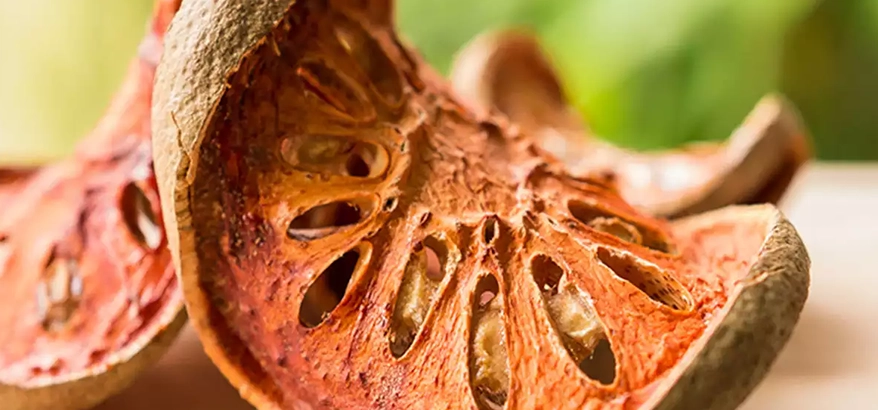
Bel fruits are high in potassium. Foods rich in potassium are ideal for people with high blood pressure. It improves the function of the arteries and improves cardiovascular functions. Consuming Bael leaves or decoction of Bael roots on an empty stomach is a traditional remedy for improving heart health.
Bael for New Mothers
Bael fruits help stimulate the production of prolactin. It has galactagogue action and helps improve lactation and the quality of breast milk. Traditionally bael juice is mixed with jaggery and dry ginger and given to women during their postnatal period to enhance lactation.
Bael for Immunity
Bael fruits are rich in Vitamin C, making them a potent immunity booster. It helps fight infections and also helps in detoxifying blood. The Bael fruit is also rich in fiber, calcium, potassium, and vitamin A.
Precautions While Using Bael
If using for the first time, rule out any allergies to Bael or any medicines containing Bael. Consume Bel fruits in moderation, as overconsumption might lead to digestive issues. If you are already on blood pressure or diabetes medicines or blood thinners, consult your doctor before including medicines containing Bael. Always consume ripe Bel fruits: unripe ones may cause severe stomach issues.
Key Takeaways
- Bel fruit is a typical summer fruit known for its gut-healing benefits.
- Ayurveda has mentioned Bael or bilva as a potent digestive herb.
- Bael has many benefits, such as promoting blood sugar balance, improving skin health, and alleviating constipation.
- Bael is used in many Ayurvedic formulations such as Vilwadi lehyam, Dasamoolarishta, and Dasamoolahareetaki.
